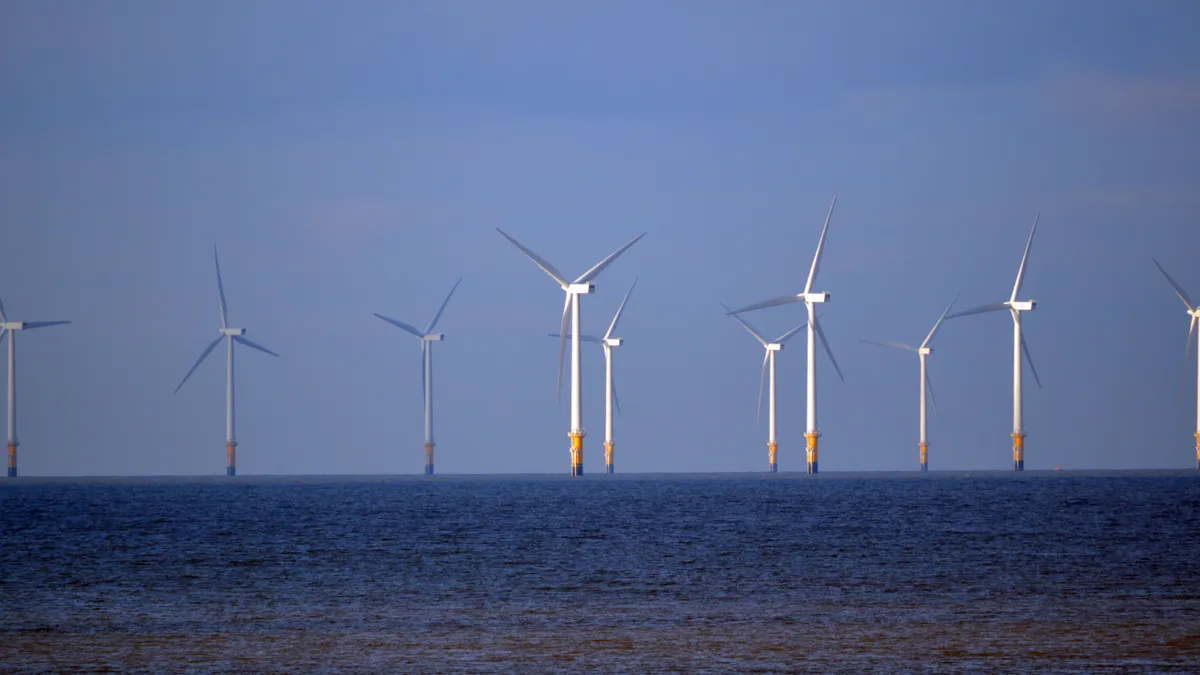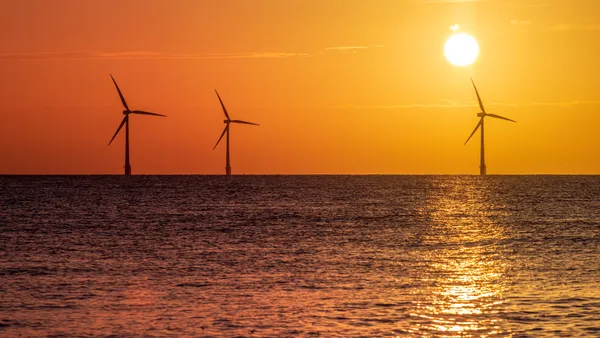Fitch Ratings has downgraded the outlook for Eversource Energy, and its NSTAR Electric utility subsidiary, to negative from stable, partly because of uncertainty around the parent company’s offshore wind plans.
“The negative outlook reflects greater uncertainty around the sale of the three offshore projects under development, including the likelihood of a lower sale price, after New York regulators declined a request for a price increase for one of the projects,” the credit ratings agency said Monday.
Eversource’s planned sale of its 50% stake in the three wind projects under development with Ørsted is “highly complex” given the sector’s headwinds, its status as a new asset class in North America and the joint venture structure, Fitch said. Moody’s Investors Service downgraded Ørsted last month.
“The transaction will take longer than previously expected, possibly involving a re-bid process, and will probably fetch a lower price given that the power prices were not adjusted upwards,” Fitch said.
Eversource's credit profile has been weak over the last three years, and proceeds from the offshore wind sales are expected to be used to cut the company’s debt, Fitch said.
“Failure to complete the sale in a timely manner would pressure Eversource's already weak financial profile, resulting in a ratings downgrade,” Fitch said.
Also, to “right-size” its balance sheet, Eversource needs to issue a significant amount of equity in 2024 and 2025, according to Fitch.
Eversource expects to spend $21.5 billion in capital expenditures from 2023 through 2027 in a “relatively low-risk” plan, according to Fitch. The planned spending includes $8.9 billion on electric distribution, $5.3 billion on natural gas distribution and $5.3 billion on transmission regulated by the Federal Energy Regulatory Commission, the ratings agency said.
“Most of Eversource's planned utility capex will be recovered with limited lag, reflecting FERC construction work in progress, electric distribution trackers and natural gas distribution infrastructure expansion cost-recovery mechanisms,” Fitch said.
Fitch said it considers FERC to be among the “most constructive” regulators due to timely cost recovery and formulaic rates of return.
Connecticut, where Eversource’s Connecticut Light and Power subsidiary operates, is a challenging regulatory environment, according to Fitch. “Recent actions by the Connecticut Public Utilities Regulatory Authority … to implement performance-based regulation, enactment of Senate Bill 7, and authorized [returns on equity] that are lower than national average result in a meaningfully less-constructive regulatory environment for electric utilities,” Fitch said.
Eversource, based in Springfield, Massachusetts, didn’t respond to a request for comment by press time.















